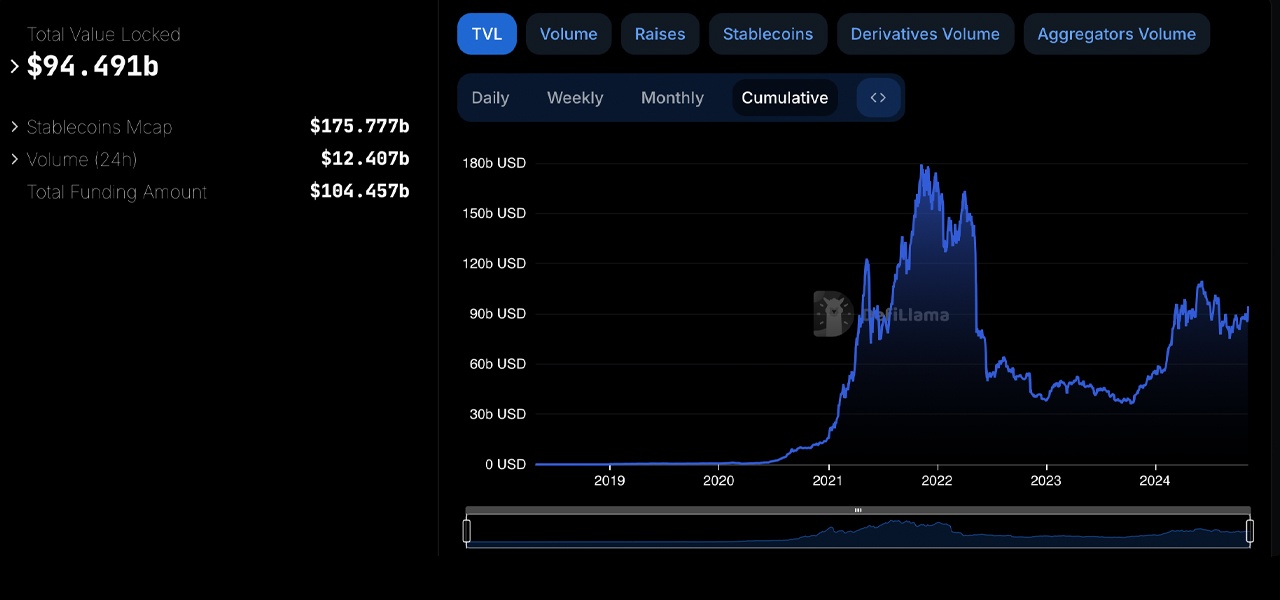According to the latest data, the crypto economy’s 2.45% climb over the last day is pushing the total value locked in decentralized finance (defi) protocols tantalizingly close to a $100 billion milestone.
$100 Billion in Sight in the Wide World of Defi Protocols
As of 11 a.m. Eastern Time (ET) on Thursday, the total value locked (TVL) in defi is resting at $94.491 billion, just $5.509 billion shy of that significant $100 billion target. Leading the defi scene are the top three protocols: Lido with $27.507 billion, Aave holding $14.964 billion, and Eigenlayer managing $11.906 billion. Each of these protocols saw double-digit growth over the past month.

This boost in TVL mirrors the upward momentum in defi and smart contract token values. Ethereum (ETH), for instance, gained more than 10% this week, with solana (SOL) rising 12%. ADA is up 9%, AVAX gained 7.7%, and LINK edged up 4.7%. Others saw larger leaps, like sui (SUI) with a 16% increase and gnosis (GNO) soaring 22.5%.
As of Nov. 7, 2024, the smart contract crypto market’s cap stands at $638.12 billion, a 13.8% uptick today. Ethereum holds more than 55% of the TVL in defi, with Tron contributing 7.1%, Solana at 7.03%, and Binance Smart Chain at 4.9%. Notably, 3.14% of TVL is on the Bitcoin blockchain, highlighting diverse blockchain participation in defi’s growth.
With defi nearing the $100 billion TVL benchmark, these gains reflect strong interest in decentralized financial solutions, especially as leading protocols continue to expand. This momentum highlights defi’s growing role within the financial ecosystem, signaling a shift in market dynamics.
Contributions across blockchains, notably from Ethereum and Solana, show that no single chain dominates defi. This spread underscores a resilient, decentralized ecosystem that isn’t overly dependent on any one protocol. As more assets and chains contribute to TVL, defi’s infrastructure could become an even more secure, competitive, and integral part of global finance.







Leave a Reply